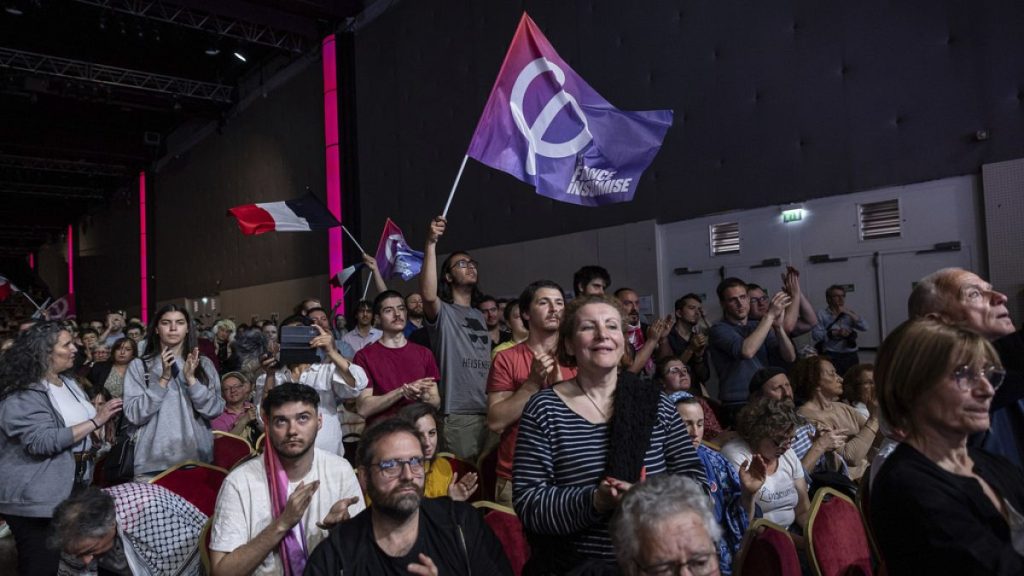The leader of France’s far-left LFI party, Jean-Luc Mélenchon, addressed supporters at a rally in Aubervilliers, near Paris, stating that now is the time for France to officially recognize Palestinian statehood. This call comes as part of the campaign for the upcoming European elections, with LFI candidate Manon Aubry also joining him on stage. They expressed intentions to pursue sanctions against Israel, as well as halt arms shipments to the country if elected. The comments were made in response to the ongoing military offensive by Israel in Gaza, which has garnered increasing global condemnation.
In a show of solidarity with Palestine, three European states – Spain, Ireland, and Norway – recently announced their formal recognition of Palestinian statehood, seven months after the Gaza war began. This move was the result of coordinated efforts between the three nations after negotiations among a group of European countries willing to take this step. The two-state solution, originally proposed by the UN in 1947, envisions creating separate nations for Jews (Israel) and Palestinians (Palestine), each with its own government. The goal is to allow both sides to coexist peacefully and independently, but Israel opposes this move, citing concerns about increased instability in the Middle East.
The issue of Palestinian statehood has received widespread international recognition, with 139 out of 193 United Nations member states acknowledging it to date. As the European elections approach, with voting set to take place from June 6-9, the stage is set for a significant political shift in the region. With 450 million people across 27 EU member states choosing 720 lawmakers for the next five years, the outcome of these elections could have far-reaching implications for the future direction of European policy on the Middle East conflict. In France, voting is scheduled to begin on June 9, and the LFI party’s stance on Palestinian statehood is likely to be a significant factor in shaping public opinion leading up to the elections.
The growing support for the recognition of Palestinian statehood in Europe reflects a broader trend of global solidarity with the Palestinian cause. The decision by Spain, Ireland, and Norway to formally recognize Palestine demonstrates a willingness among some European nations to take a stand against Israel’s military actions in Gaza and advocate for a peaceful resolution to the conflict. As the debate over the two-state solution continues to evolve, it remains a contentious issue that has the potential to reshape the geopolitical landscape of the region. The upcoming European elections will offer voters the opportunity to express their views on this critical issue and potentially influence the direction of European policy in the coming years.
The LFI party’s call for France to recognize Palestinian statehood aligns with a broader movement within the European Union to shift towards a more pro-Palestinian stance. The party’s pledge to implement sanctions against Israel and halt arms shipments if elected reflects a desire to hold Israel accountable for its actions in Gaza and support the Palestinian cause. As the campaign for the upcoming European elections intensifies, the issue of Palestinian statehood is likely to remain a key point of contention, with differing views on how best to address the conflict between Israel and Palestine. The outcome of these elections could have significant implications for the future of European policy towards the Middle East and the pursuit of a lasting peace in the region.


